 Petzlover
Petzlover Nebelung is originated from United States but Manx is originated from United Kingdom. Both Nebelung and Manx are of same weight. Nebelung may live 3 years more than Manx. Both Nebelung and Manx has same litter size. Both Nebelung and Manx requires Low Maintenance.
Nebelung is originated from United States but Manx is originated from United Kingdom. Both Nebelung and Manx are of same weight. Nebelung may live 3 years more than Manx. Both Nebelung and Manx has same litter size. Both Nebelung and Manx requires Low Maintenance.
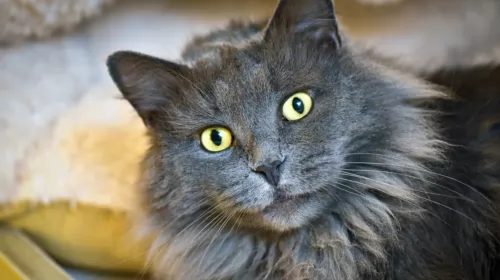 The Nebelung is a new breed of cat originating in the USA. It is a close relative of the short-haired Russian Blue.
The Nebelung is a new breed of cat originating in the USA. It is a close relative of the short-haired Russian Blue.
The name Nebelung means 'creature of the mist' in German. This is because of the cat’s beautiful silver-blue coat.
It was in the mid-1980s that Cora Cobb had a domestic shorthair cat mated with a Russian Blue, with one kitten from the litter having long, blue hair. She started a breeding program and in 1987 the Nebelung was given status as an entirely new breed by The International Cat Association as well as the American Cat Fanciers Association.
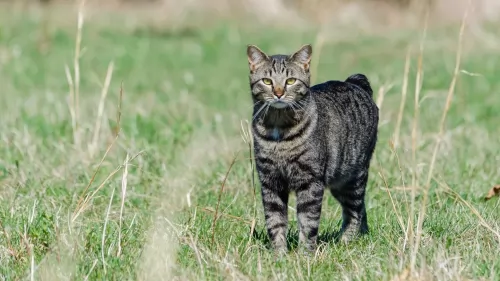 The Manx cat is a domestic cat originating on the Isle of Man, with a short tail. It is one of the oldest cat breeds.
The Manx cat is a domestic cat originating on the Isle of Man, with a short tail. It is one of the oldest cat breeds.
The cat is actually known as being a tailless cat. This is the cat's most distinguishing feature. They've been seen at cat shows since the 1800s.
These cats are descended from mainland stock, whose origins are unknown. It is said these cats are descended from the African wildcat.
The Manx is recognized by the Cat Fanciers Association as well as other cat associations.
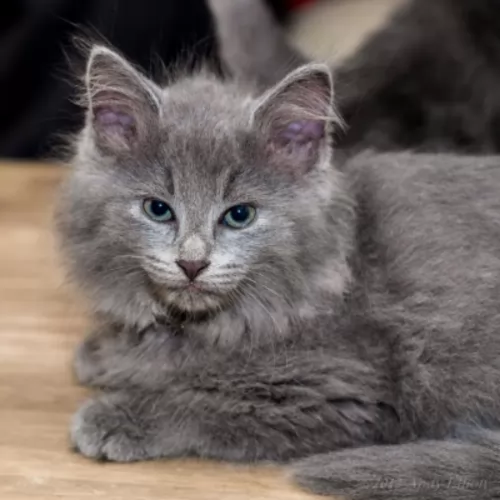 The beautiful Nebelung is a rare domestic medium-sized cat with a long muscled body and long legs. They weigh between 3 and 6kg. The oval-shaped eyes are green or a yellow-green color and the eyes are large and pointed. The coat of the cat is long and thick with an undercoat and grey in color with the males and some females having a ruff round the neck.
The beautiful Nebelung is a rare domestic medium-sized cat with a long muscled body and long legs. They weigh between 3 and 6kg. The oval-shaped eyes are green or a yellow-green color and the eyes are large and pointed. The coat of the cat is long and thick with an undercoat and grey in color with the males and some females having a ruff round the neck.
The Nebelung is a lively, playful cat that is good-natured and loves to be around his human family. People who have owned them say they behave a lot like dogs. It means you can have him trained to walk on a leash.
He is somewhat aloof with strangers. He is a gentle cat and very intelligent, forming tight bonds with some special members of his human family. They love to be petted and stroked by this favorite human being.
The cat also communicates well. They like their litter box kept nice and clean and they can be quite finicky when it comes to their food.
Because of their playfulness, make sure you have lots of puzzle toys for him. They’re cats that like things to remain the same – no sudden changes for them as they become stressful. Because of their quiet natures, they don’t relish the idea of wild, undisciplined children and would prefer to live in a home with a few adults,
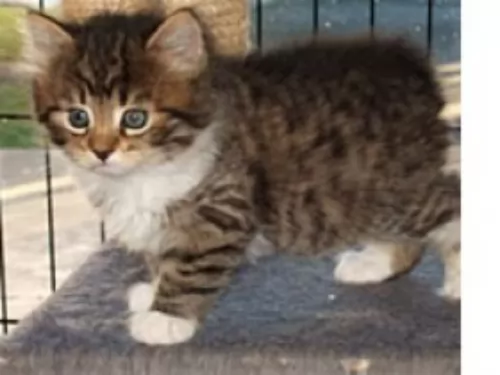 The Manx cat is a medium-sized cat with a stocky, muscular, heavy build. He can weigh between 3 and 6kg. Manx cats come in all coat colors and patterns.
The Manx cat is a medium-sized cat with a stocky, muscular, heavy build. He can weigh between 3 and 6kg. Manx cats come in all coat colors and patterns.
The coat of the cat can be short or long. The long-haired variety is considered its own breed. The cat has always been popular for helping farmers keep rodents under control.
Besides taillessness, the Manx is described as a round cat and its head is round too. The back legs of the cat are much longer than the forelegs.
The eyes of this cat are large and round and can be in different colors such as green, gold, copper, brown, or yellow.
They are very playful and intelligent cats who are devoted to their families. They can easily learn tricks and he can even be taught to walk on a leash.
They’re cats that love to jump and they’re active, playful cats. Don’t be surprised if you see him playing with the water in his water bowl as he is a cat fond of playing in water.
These cats are thought to be dog-like as they’re capable of becoming devoted to their human family. They also have a great sense of humor and they become very entertaining. Children love them as they’re so playful and they in turn get on well with children. When you have a Manx cat in your house, there is never a dull moment.
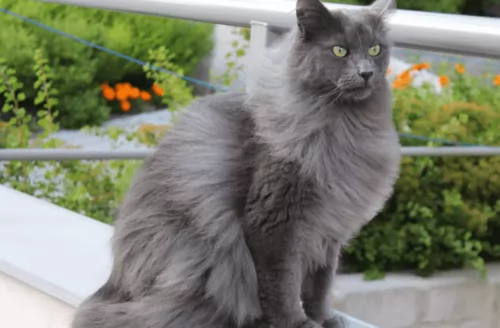 The Nebelung is a gentle, quiet cat that simply wants to live in harmony with the human family he loves.
The Nebelung is a gentle, quiet cat that simply wants to live in harmony with the human family he loves.
He prefers a quiet, consistent kind of lifestyle. He is active, social, and fun around them but is reserved with strangers.
He is a loyal and loving cat and can become dejected if he doesn’t receive the same amount of love and attention that he craves and which he is so willing to give.
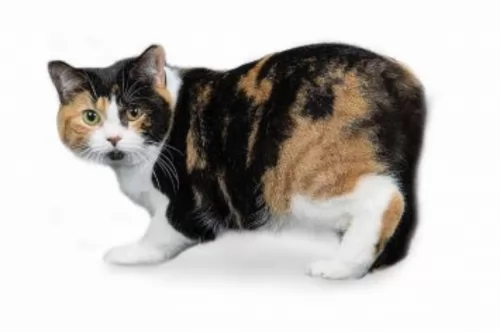 The loving Manx cat is such an even-tempered cat as well and wants to get along well with its entire human family. You can be sure of many years of affection and companionship from this cat.
The loving Manx cat is such an even-tempered cat as well and wants to get along well with its entire human family. You can be sure of many years of affection and companionship from this cat.
It’s a cat that is fairly placid but it still loves to run and play, It’s an amusing cat too and to round everything off it also has a strange way of walking and running.
Give the Manx cat a warm. Loving home and you’ll quickly discover why the Manx cat is such a popular companion cat for so many people. The Manx is such a social, family orientated cat and you shouldn't bring him into your home if you don't have plenty of time for him.
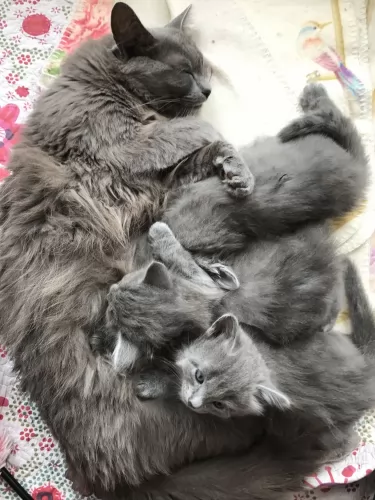 These beautiful cats don’t have many health issues. They are generally healthy cats.
These beautiful cats don’t have many health issues. They are generally healthy cats.
Don’t allow your cat to become overweight as this can bring on a host of health conditions. There was a time when cats didn’t get much older than 10 years of age, but with advancements in good nutrition and good veterinary care, a cat can reach 15 to 20 years of age.
Certainly, as your beloved pet starts to move into his senior years, he will face aging problems. Aging cats are susceptible to faltering vision, arthritis, hearing loss, thyroid problems gum and teeth disease, diabetes, incontinence, and even dementia.
Remember to continue feeding your senior cat the best quality cat food there is.
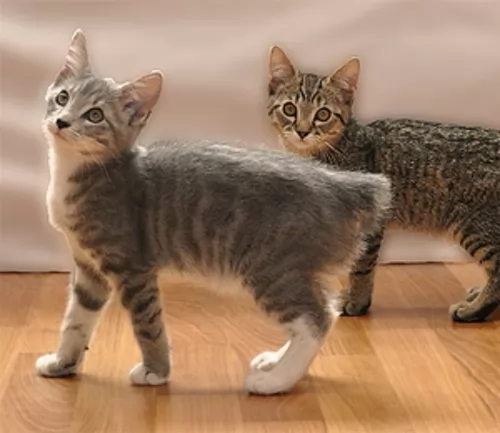 The absence of a tail with the Manx cat is believed to be a genetic defect and because of the spine that looks deformed, it is thought that this would cause the cat problems.
The absence of a tail with the Manx cat is believed to be a genetic defect and because of the spine that looks deformed, it is thought that this would cause the cat problems.
Arthritis can set in early with the Manx cat. Arthritis or osteoarthritis affects many cats and the signs of arthritis in a cat can actually be subtle. The disease can go undetected. Arthritis is about wear and tear in the joints, although other factors such as injury, infection and genetic makeup come into play as well. Arthritis can affect one or more joints in the body such as the hips, elbows ad spine.
The mutant gene that causes the taillessness in this cat may also be responsible for other skeletal deformities in the Manx cat. As a round-shaped cat, the Manx cat can also battle with bladder control.
These ailments are just possibilities with this cat breed and it is more than likely that your Manx cat will never have any one of these diseases.
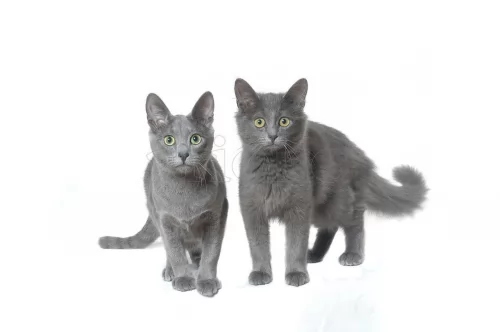 This cat, as a carnivore, should be fed a high- quality cat food that is high in protein. The poorer quality foods won’t have the right mix of vitamins and minerals – so important for your pet.
This cat, as a carnivore, should be fed a high- quality cat food that is high in protein. The poorer quality foods won’t have the right mix of vitamins and minerals – so important for your pet.
These inferior foods often lack the right nutrients and can make your cat sick. Make sure you give your cat a top protein diet with ingredients that must have taurine, an important amino acid.
The Nebelung has a long, double coat and even though the cat isn’t a heavy shedder, it will require a brush every week to prevent the coat from becoming tangled.
Make sure you have everything you need for welcoming a cat into your home. He will need food and water bowls, warm, soft bed, litter box, climbing tree, scratching post, collar, grooming accessories, and a cat-carrying box for when he needs to go to the vet.
Ensure you take your pet to the vet as soon as he shows signs of illness. There are some terrible cat illnesses and they can cause a lot of discomfort and pain for your furry friend.
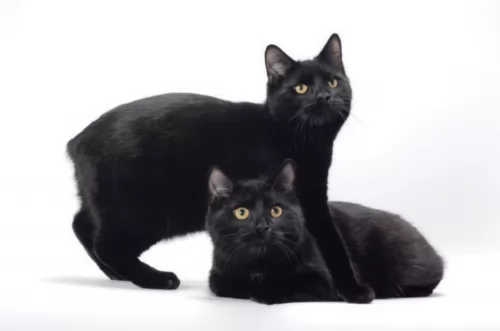 One of the most important caring things that you can do for your cat is to provide him with the best diet there is. The Manx cat requires a balanced diet of protein, vitamins and minerals.
One of the most important caring things that you can do for your cat is to provide him with the best diet there is. The Manx cat requires a balanced diet of protein, vitamins and minerals.
The Manx cat is a carnivore and will need a diet high in protein. Learn to read the labels on the packaging of the commercial cat food, whether wet or dry, and ensure that ingredients such as omega 3 fatty acids and taurine are in the ingredients list.
If you are in any doubt as to what to feed your Manx cat, speak to your vet.
The short coat of the Manx is easily cared for by a brush each week to remove dead, loose hair.
With this tailless cat, you need to check the rear end and perhaps clip the hair short in this area to ensure no feces clinging to the fur surrounding the anus.